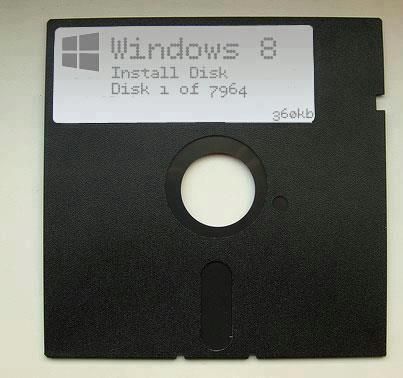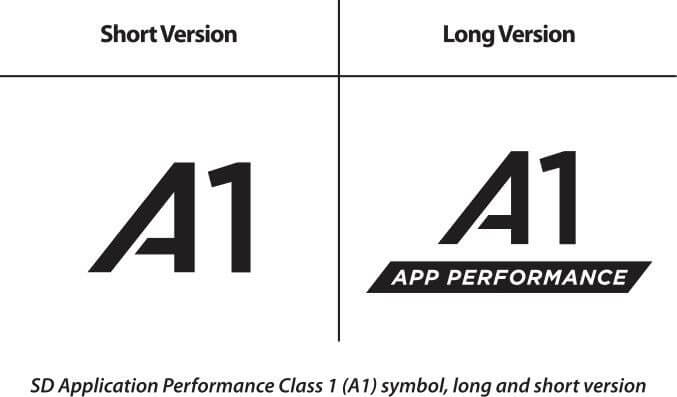Asclepias
Diamond Member
I have always used USB drives to store my media on. Recently I have been looking at micro SD cards as a better alternative. Any cons with these cards vs USB drives?
Follow along with the video below to see how to install our site as a web app on your home screen.

Note: This feature currently requires accessing the site using the built-in Safari browser.

Yes, our nuclear control systems.........OMG! Are there any computers left that supports floppies?
Lifetime: Decades
There are USB floppy drives.OMG! Are there any computers left that supports floppies?
Lifetime: Decades

Good point. I hope USB will last for decades. They are always backward compatible.I would expect the data stored on the chips to have longevity equal to or slightly better than that stored on USB thumb drives.My concern, however, is availability of the means to access the data a few years down the road. Chip readers in off-the-shelf computers are of more recent origin than USB ports so may be around a bit longer. Plus there are plenty of chip readers that can plug into various ports on computers and adapters can be cascaded when (not "if") USB ports are no longer standard.
I base this on seeing vast libraries of 2" video tape for which there are precious few VTRs left functional to play them back and copy them to newer formats.
I would expect the data stored on the chips to have longevity equal to or slightly better than that stored on USB thumb drives.My concern, however, is availability of the means to access the data a few years down the road. Chip readers in off-the-shelf computers are of more recent origin than USB ports so may be around a bit longer. Plus there are plenty of chip readers that can plug into various ports on computers and adapters can be cascaded when (not "if") USB ports are no longer standard.
I base this on seeing vast libraries of 2" video tape for which there are precious few VTRs left functional to play them back and copy them to newer formats.
Technically the most portable storage device is cloud storage, you can pretty much access your files anywhere from any device that has internet capabilities. As for the positives and negatives, that usually depends on each person.USB is more universal, that is the largest difference for me. You can go anywhere and USB will be available where SD card readers are far less likely. If you are only dealing with your own devices then such is irrelevant. USB is also far cheaper in my experience but that may have changed considering all the portable devices that use SD cards now.
I would expect the data stored on the chips to have longevity equal to or slightly better than that stored on USB thumb drives.My concern, however, is availability of the means to access the data a few years down the road. Chip readers in off-the-shelf computers are of more recent origin than USB ports so may be around a bit longer. Plus there are plenty of chip readers that can plug into various ports on computers and adapters can be cascaded when (not "if") USB ports are no longer standard.
I base this on seeing vast libraries of 2" video tape for which there are precious few VTRs left functional to play them back and copy them to newer formats.
I would not expect SD formats to outlast USB. Virtually everything is USB these days - it will stick around for decades. Every single computer has USB access, every phone charges through USB and essentially every device that has a SD card in it also has a USB connection. This is not true in the reverse. There are also several versions of chips.
USB is not going anywhere. SD cards will likely last a long time as well but they will disappear if a newer, better version cones out.
That is a good point.Technically the most portable storage device is cloud storage, you can pretty much access your files anywhere from any device that has internet capabilities. As for the positives and negatives, that usually depends on each person.USB is more universal, that is the largest difference for me. You can go anywhere and USB will be available where SD card readers are far less likely. If you are only dealing with your own devices then such is irrelevant. USB is also far cheaper in my experience but that may have changed considering all the portable devices that use SD cards now.
I would expect the data stored on the chips to have longevity equal to or slightly better than that stored on USB thumb drives.My concern, however, is availability of the means to access the data a few years down the road. Chip readers in off-the-shelf computers are of more recent origin than USB ports so may be around a bit longer. Plus there are plenty of chip readers that can plug into various ports on computers and adapters can be cascaded when (not "if") USB ports are no longer standard.
I base this on seeing vast libraries of 2" video tape for which there are precious few VTRs left functional to play them back and copy them to newer formats.
I would not expect SD formats to outlast USB. Virtually everything is USB these days - it will stick around for decades. Every single computer has USB access, every phone charges through USB and essentially every device that has a SD card in it also has a USB connection. This is not true in the reverse. There are also several versions of chips.
USB is not going anywhere. SD cards will likely last a long time as well but they will disappear if a newer, better version cones out.
I don't use it but I really don't save much on my computers any more, the wife on the other hand........That is a good point.Technically the most portable storage device is cloud storage, you can pretty much access your files anywhere from any device that has internet capabilities. As for the positives and negatives, that usually depends on each person.USB is more universal, that is the largest difference for me. You can go anywhere and USB will be available where SD card readers are far less likely. If you are only dealing with your own devices then such is irrelevant. USB is also far cheaper in my experience but that may have changed considering all the portable devices that use SD cards now.
I would expect the data stored on the chips to have longevity equal to or slightly better than that stored on USB thumb drives.My concern, however, is availability of the means to access the data a few years down the road. Chip readers in off-the-shelf computers are of more recent origin than USB ports so may be around a bit longer. Plus there are plenty of chip readers that can plug into various ports on computers and adapters can be cascaded when (not "if") USB ports are no longer standard.
I base this on seeing vast libraries of 2" video tape for which there are precious few VTRs left functional to play them back and copy them to newer formats.
I would not expect SD formats to outlast USB. Virtually everything is USB these days - it will stick around for decades. Every single computer has USB access, every phone charges through USB and essentially every device that has a SD card in it also has a USB connection. This is not true in the reverse. There are also several versions of chips.
USB is not going anywhere. SD cards will likely last a long time as well but they will disappear if a newer, better version cones out.
With cloud, you also have reliability. It is very unlikely that you would lose any data. The negative there is that someone else is responsible for that integrity and that may bother some people.
It is also worth pointing out that if could begins to become dated (highly unlikely) you could chose another method at that time for transferring your data over and it would be extremely simple.
I've lost data on my USB drives a couple of times. Never on my SD cards that were in my camera. Luckily I had cloud backup.USB is more universal, that is the largest difference for me. You can go anywhere and USB will be available where SD card readers are far less likely. If you are only dealing with your own devices then such is irrelevant. USB is also far cheaper in my experience but that may have changed considering all the portable devices that use SD cards now.
I would expect the data stored on the chips to have longevity equal to or slightly better than that stored on USB thumb drives.My concern, however, is availability of the means to access the data a few years down the road. Chip readers in off-the-shelf computers are of more recent origin than USB ports so may be around a bit longer. Plus there are plenty of chip readers that can plug into various ports on computers and adapters can be cascaded when (not "if") USB ports are no longer standard.
I base this on seeing vast libraries of 2" video tape for which there are precious few VTRs left functional to play them back and copy them to newer formats.
I would not expect SD formats to outlast USB. Virtually everything is USB these days - it will stick around for decades. Every single computer has USB access, every phone charges through USB and essentially every device that has a SD card in it also has a USB connection. This is not true in the reverse. There are also several versions of chips.
USB is not going anywhere. SD cards will likely last a long time as well but they will disappear if a newer, better version cones out.
With adapters you can turn a Micro SD Card into a larger SD Card and even into a USB drive. This is why SD cards are more universal.USB is more universal, that is the largest difference for me.